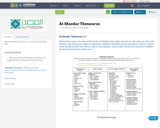
This is Al-Masdar Thesaurus, v1, introduced at ACTFL 2013.

This is Al-Masdar Thesaurus, v1, introduced at ACTFL 2013.
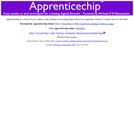
Apprenticechip is a course on case studies in and techniques for creating digital libraries for apprentice learners.
The goals of this course are: 1. Learn a 10 step approach to digital library design, creation, curation, operation and evaluation. 2. Through the lens of this 10 step approach, review case studies of over 20 digital libraries of various sizes, encompassing a variety of disciplines, addressing diverse missions, utilizing a variety of technologies and learn how they succeeded and failed. 3. Use this 10 step approach to create your own small digital library to help apprentice learners in your area of professional expertise or personal passion.
We also wish to provide an introduction to digital libraries and to explore the questions 1) What is the history of digital libraries and learning? 2) What is the future of digital libraries and learning? 3) How can we create digital libraries that help apprentice learners? and 4) What role do professional + amateur librarians have to play in the future of digital libraries and learning?
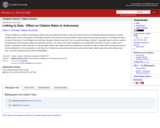
Is there a difference in citation rates between articles that were published with links to data and articles that were not? Besides being interesting from a purely academic point of view, this question is also highly relevant for the process of furthering science. Data sharing not only helps the process of verification of claims, but also the discovery of new findings in archival data. However, linking to data still is a far cry away from being a "practice", especially where it comes to authors providing these links during the writing and submission process. You need to have both a willingness and a publication mechanism in order to create such a practice. Showing that articles with links to data get higher citation rates might increase the willingness of scientists to take the extra steps of linking data sources to their publications. In this presentation we will show this is indeed the case: articles with links to data result in higher citation rates than articles without such links. The ADS is funded by NASA Grant NNX09AB39G.
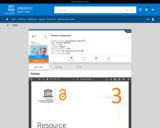
This module focuses on resource optimization in general that aims to discuss how the open access environment can be promoted and how the collection development may be facilitated by integrating open access resources with institutional and library resources. At the end of this module, the learner is expected to be able to foster an enabling environment for Open Access, and facilitate collection development by integrating library services.
The module consists of three units. Unit 1 deals with OA mandates and policies; Unit 2 focuses on OA content management; and unit 3 is on harvesting and integration. The Unit 1 which is on open access mandates and policies portraits different policies and mandates at international, national and institutional levels and the related issues. Formulation of Policies/Mandates by the publishers/copy right holders/funding agencies facilitates the wider accessibility of scholarly communications. Through this unit you will be acquainted with sources of OA mandates and policies and analyze the features of some important policies in use. The aim is to prepare you to develop competency to frame a draft OA policy for your institution.
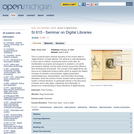
SI 615 - This is a special topics seminar focusing on the current state of Ňdigital librariesÓ broadly defined. The seminar is multi-disciplinary in focus and in method, covering the history of the idea, its manifestation as projects and programs in academic, non-profit, and research settings, and the suite of policy issues that influence their development and growth. The concept of the digital library will serve as an intellectual construct within which to explore the related concepts of scholarly communication, digital preservation, cyberinfrastructure, representation, and information technology standards. Given the seminar format, students will be expected to master a diverse literature, to participate actively in the discussion of issues, and to take steps, collectively and individually, to advance our understanding of future directions of digital libraries.
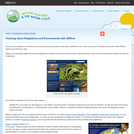
This article introduces ARKive, a digital library of photographs and videos of the world's wildlife. The library gives special priority to at-risk species. The author notes how this interactive resource can be used by K-5 teachers to support other activities connected to the theme of this issue of the free, online magazine Beyond Weather and the Water Cycle -- We Depend on Earth's Climate.
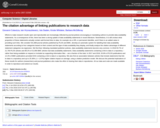
Efforts to make research results open and reproducible are increasingly reflected by journal policies encouraging or mandating authors to provide data availability statements. As a consequence of this, there has been a strong uptake of data availability statements in recent literature. Nevertheless, it is still unclear what proportion of these statements actually contain well-formed links to data, for example via a URL or permanent identifier, and if there is an added value in providing them. We consider 531,889 journal articles published by PLOS and BMC which are part of the PubMed Open Access collection, categorize their data availability statements according to their content and analyze the citation advantage of different statement categories via regression. We find that, following mandated publisher policies, data availability statements have become common by now, yet statements containing a link to a repository are still just a fraction of the total. We also find that articles with these statements, in particular, can have up to 25.36% higher citation impact on average: an encouraging result for all publishers and authors who make the effort of sharing their data. All our data and code are made available in order to reproduce and extend our results.